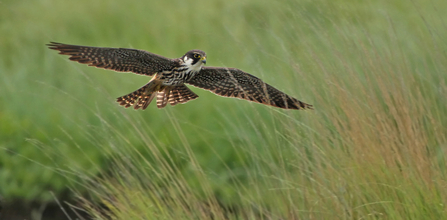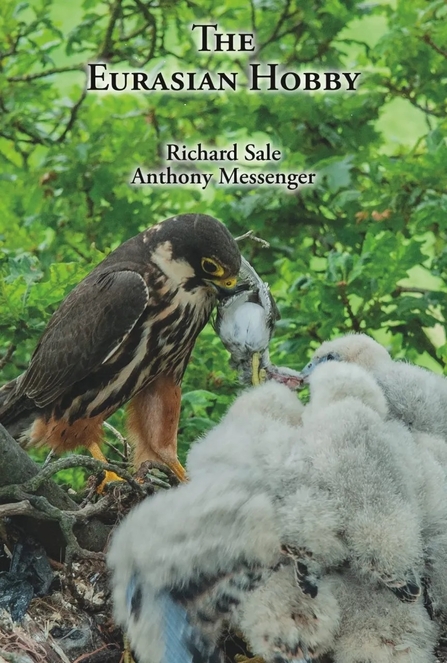In the years since, its population has risen dramatically and now there are some 2000 pairs in the UK and upwards of 80 pairs breeding here, a remarkable expansion given that so many species have declined over the same period.
A new book on this elusive bird has just been published. One of the authors, Anthony Messenger, has carried out thirty years of research on it exclusively in Derbyshire. The Eurasian Hobby, by Richard Sale and Anthony Messenger, published by Snowfinch Books, is now available from the Natural History Book Store.


